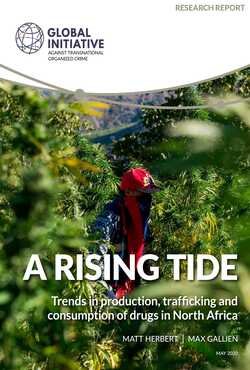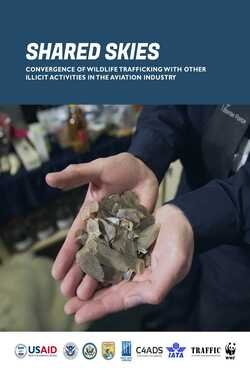By Ben Spevack
Shared Skies contains new research, carried out by C4ADS, exploring the overlap of methods and routes used in wildlife trafficking and other illicit smuggling crimes such as drugs and weapons. Using this analysis, it gives recommendations to aviation and enforcement agencies on how to strengthen mitigation of wildlife trafficking and the wider spectrum of transnational crime.
An assessment of the routes, networks and methods used for trafficking wildlife and other illicit goods such as drugs and weapons between 2015-2019 shows a high degree of interconnection, which if addressed could prove hugely beneficial to disrupting illicit activities.
Our previous report, Runway to Extinction, touched on the idea that non-wildlife trafficking operations exploit the same vulnerabilities in systems of communication, finance and transport as wildlife traffickers. By taking a closer look at the points of convergence between illicit trades, Shared Skies identifies five levels at which this convergence may occur: shipment, organization, route, hub (such as an airport or city) and jurisdiction, and advises on how this information can be leveraged to disrupt criminal activities across aviation.
The recommendations fall into three broad categories: improving collection and reporting of seizure data; increasing collaboration between aviation and enforcement stakeholders in addressing convergence; and refining mitigation activities to address all illicit commodity types.
Washington, DC: Center for Advanced Defense Studies, 2021. 21p.








